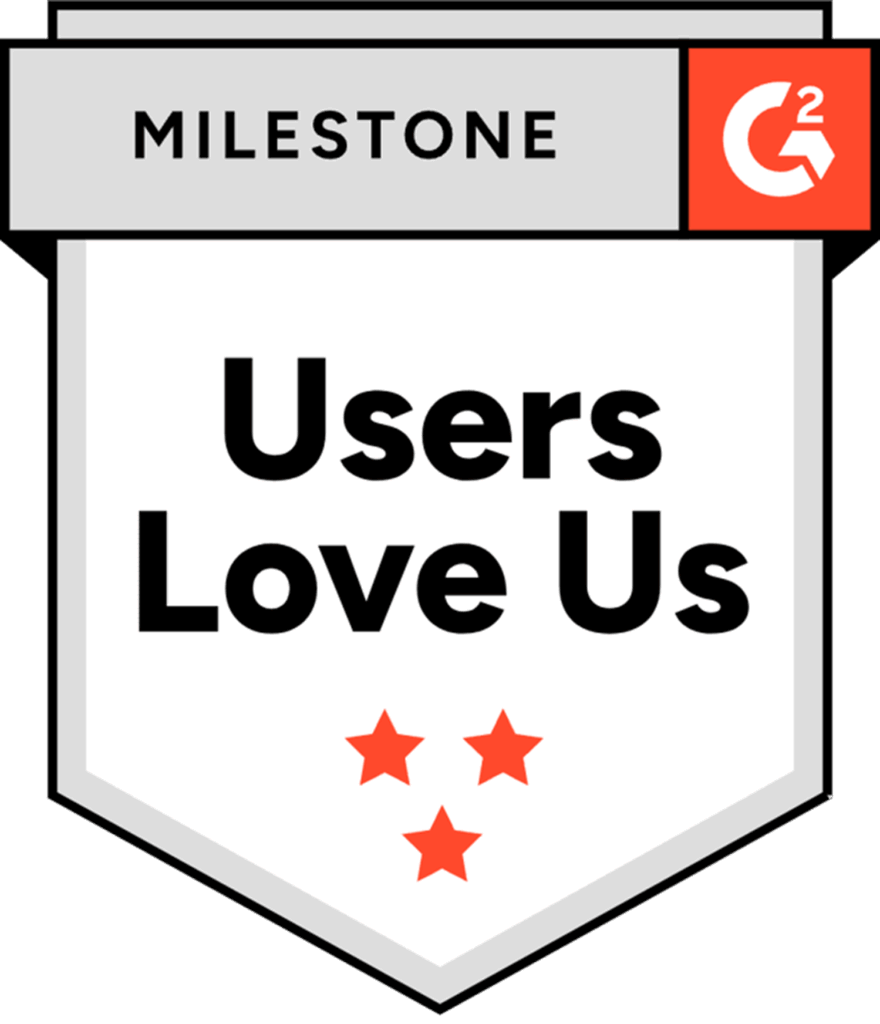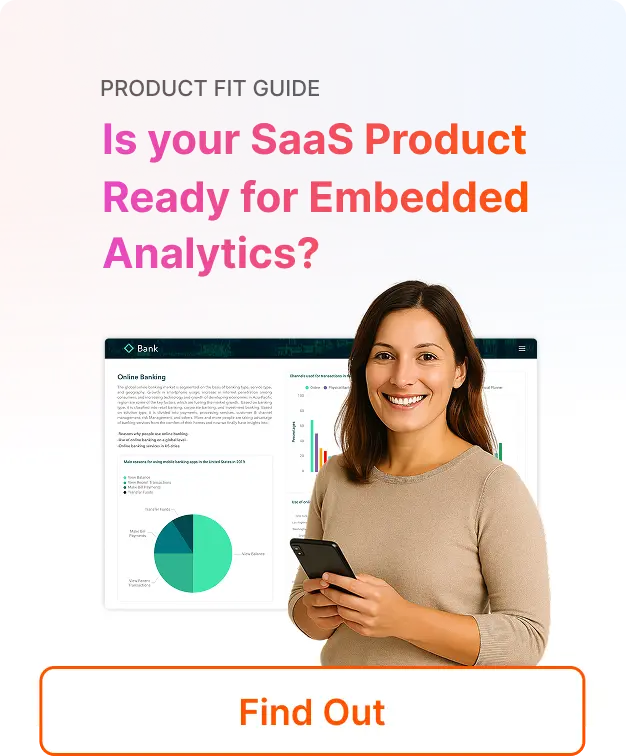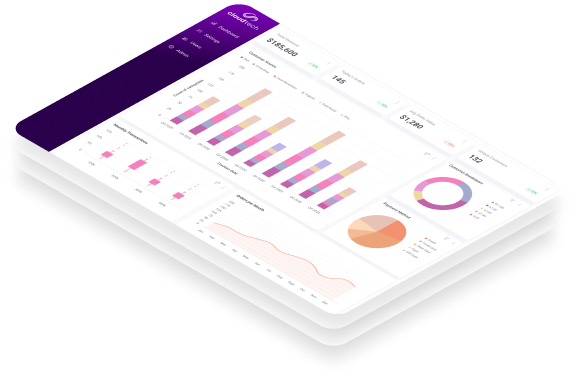
Multi-Tenant Analytics Platform
Build Less.
Deliver More.
One solution. Unprecedented time to value.
The only turnkey multi-tenant analytics solution that empowers development teams to ship faster and reduce maintenance.
The Only Purpose-Built Solution for Multi-Tenant Analytics
The multi-tenant analytics platform for SaaS applications with a unified data pipeline that empowers development teams to ship fast regardless of data source, data type or front-end framework.
Easy to Implement Permissions
A native semantic layer that inherits tenant and user level security models
Scalable Data Lake
Built-in data lake optimized for scalable tenant isolation for embedded analytics
Full Suite of APIs
Analyze more with APIs built for data ingestion and reporting
HOW IT WORKS
A Full-Stack Approach to Multi-Tenant Analytics
As self-hosted software, Qrvey gives you the flexibility to go from data to analytics using a single data pipeline, eliminating data transfers and costs associated with building in-house.
STEP 1
Deploy
Qrvey is a fully deployed solution. You get the best of security and scalability within your cloud platform utilizing easy to manage deployment packages built on serverless technology.
Learn MoreSTEP 2
Connect
Using native data connectors and push APIs, you can connect to any data warehouse or database to ingest data of any type, opening up the possibilities of what you can offer users.
Learn MoreSTEP 3
Integrate
Connect the built-in data lake to your SaaS application using a suite of APIs that allow you to easily map to your tenants, users, and permission structure without duplicating users and roles.
Learn MoreSTEP 4
Analyze
Using JS-based embedded data visualization widgets or reporting APIs, you can be up and running fast offering customizable analytics experiences your users will love.
Learn More
CASE STUDY
See How JobNimbus deployed Qrvey to 6,000 customers and saw an immediate reduction in customer churn.
USE CASES
A Solution For Any Challenge You May Face
With a purpose-built, multi-tenant analytics platform for SaaS applications, the possibilities are endless.
Custom Data Models Per Tenant
Create unlimited data models down to the tenant and user level to empower users to analyze data differently based on their own requirements.
Personalize Any Data Visualization
By offering visualization widgets and APIs, you can create personalized experiences tailored to user needs.
Analyze Multiple Data Sources On One Dashboard
Visualize data from different sources on the same dashboard, mixing synced and live data sources to reduce querying costs.
Deploy Assets to Specific Tenants
With a content deployment system designed for multi-tenancy, you can release new content to users incrementally, create betas or MVPs.
See what our partners have to say.

Herman Haynes
CIO @ Global K9 Protection Group
Adding Qrvey to our business was like turning on a light switch.


Ryan Quackenbush
Senior PM @ JobNimbus
We can’t speak highly enough of the stellar team at Qrvey. Within months of deploying Qrvey, JobNimbus achieved 70% adoption among large
enterprise users.


Dadou Jahanbani
CTO @ Impexium
Qrvey allowed Impexium to go to market quickly and get analytics into the hands of our customers.


Srinivasa Sridharan
CTO @ Setvi
Excellent product and customer support.
asasasasasasas sasasasas






More Insights
Why is Multi-Tenant Analytics So Hard?
BLOG
Creating performant, secure, and scalable multi-tenant analytics requires overcoming steep engineering challenges that stretch the limits of...
Pricing Strategies to Maximize Revenue from Analytics
GUIDE
Unlock the full potential of your SaaS business with our comprehensive guide on pricing and packaging strategies.
How JobNimbus deployed Qrvey to 6,000 customers
CASE STUDY
Discover how JobNimbus deployed Qrvey to 6,000 customers and saw an immediate reduction in customer churn....
FAQs About
Multi-Tenant Analytics
Multi-tenant analytics for SaaS applications refers to analyzing data from many different customers (tenants) within a single platform. Unlike traditional analytics solutions where each customer gets their own isolated environment, multi-tenant uses a shared infrastructure while keeping each tenant’s data secure and separate. This makes it a flexible and efficient way for SaaS companies to provide analytics capabilities to their users.
Scalability and Cost-Effectiveness: One platform can serve numerous customers, reducing infrastructure and development costs per user.
Reduced Time to Insights: Analytics and reporting capabilities are readily available, empowering tenants to make data-driven decisions quickly.
Improved Engagement and Retention: Granular insights empower tenants to optimize their experience with the SaaS application, leading to better engagement and lower churn.
Product Development Insights: Analyzing aggregated, anonymized data across tenants provides valuable insights for product improvements and future features.
Here are some examples of use cases for multi-tenant analytics by SaaS companies:
Customer-facing dashboards: Tenants can analyze their own usage data, track KPIs, and monitor performance within the SaaS application.
Embedded analytics: Integrate real-time insights directly into the application interface, offering users actionable information at their fingertips.
Benchmarking and insights: Compare individual performance against anonymized industry or peer group data for competitive benchmarking and strategic decision-making.
Product usage analysis: Aggregate and analyze usage data across all tenants to identify trends, understand common pain points, and make informed product development decisions.
Sales and marketing analysis: Track campaign performance, analyze customer acquisition costs, and identify high-value customer segments for targeted marketing efforts.
Financial and operational reporting: Generate reports on key financial metrics, resource utilization, and operational efficiency across the entire customer base.
While building your own multi-analytics solution might seem tempting for complete control and customization, in most cases, it’s better for SaaS companies to buy a purpose-built solution. Here’s why:
Time and Cost Efficiency:
- Buy: Ready-made solutions are available quickly, reducing development time and resource allocation. You avoid the hefty up-front costs associated with building, testing, and launching your own platform.
- Build: Expect significant investments in development, testing, maintenance, and ongoing updates. Launching can take months or even years, delaying value realization.
Expertise and Features:
- Buy: Dedicated vendors focus on multi-tenant analytics – also known as embedded analytics – offering advanced features, integrations, and security protocols unavailable in-house. Regular updates ensure you benefit from the latest advancements.
- Build: Achieving similar feature parity requires a dedicated team with expert knowledge and ongoing research, which can be expensive and drain resources from core tasks.
Focus on Core Business:
- Buy: Free up your team to focus on product development, customer support, and marketing, where your specific value lies.
- Build: Diverting resources to build and maintain analytics becomes a secondary focus, potentially impacting core business activities.
Scalability and Maintenance:
- Buy: Purpose-built solutions are designed to scale seamlessly with your customer base, eliminating concerns about infrastructure and maintenance burdens.
- Build: Scaling your own solution may require costly infrastructure upgrades and additional development efforts, increasing complexity.
Security and Compliance:
- Buy: Established vendors prioritize security and compliance with industry regulations, reducing your risk and liability.
- Build: Ensuring robust security and compliance requires specialized expertise and ongoing monitoring, adding to your responsibilities.
Data Privacy:
- Buy: Reputable vendors have established data privacy protocols and ensure tenant data remains secure and separate.
- Build: Implementing robust data privacy measures becomes your responsibility, requiring significant expertise and resources.
Ongoing Support:
- Buy: Benefit from dedicated support teams specializing in the analytics tool, ensuring smooth operation and resolution of any issues.
- Build: Relying on your own team for troubleshooting and updates can be time-consuming and expensive.
However, the decision isn’t always black and white. Consider these factors before making a choice:
- Unique needs: If your analytics requirements are highly specific and differ significantly from standard options, building might be justifiable.
- Technical expertise: Does your team have the necessary skills and bandwidth to build and maintain a complex solution?
- Budget: Can you afford the initial and ongoing costs associated with building and maintaining your own platform?
Remember, even large companies with significant resources often opt to buy multi-analytics solutions due to the efficiency and expertise they offer. Carefully evaluate your specific needs and resources before making a decision that suits your company’s best interests.
See Qrvey in Action
Learn about Qrvey’s embedded analytics platform and get quick answers to your questions by booking a guided product tour with our experts.














